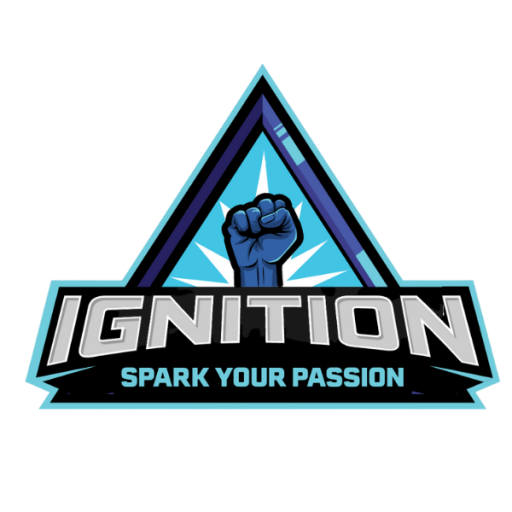Navigating the transition from adolescence to adulthood is a significant milestone for all young people, and it holds unique challenges for those on the autism spectrum. For some individuals and their families, this journey may include finding suitable vocational education and training (VET) opportunities that align with their skills, interests, and strengths.
In this post, we’ll explore the importance of vocational pathways for young autistic individuals, their challenges, and practical strategies for unlocking doors to a fulfilling future.
Understanding the Importance of Vocational Pathways
VET opportunities are not just pathways to employment; they are gateways to further education, skill development, independence, confidence, and a sense of purpose.
According to Seek.com, vocational training provides practical, industry-specific training that offers a direct route to employment in some of today’s most in-demand professions. For example, this could be in fields like plumbing and carpentry, healthcare, information technology and even hospitality.

For young autistic individuals, meaningful work goes beyond a pay check; it provides an essential platform for skill development, social interaction, and self-expression.
Challenges to Finding Suitable VET Pathways
Young autistic individuals are bound to face some challenges in their search for suitable VET pathways.
Autism presents differently in individuals, but it’s fair to say that these challenges could include difficulties with social communication, sensory sensitivities in the workplace, and a need for tailored support structures. Stigma and misconceptions about autism within the job market can also further complicate the process.
Addressing these challenges requires an approach that involves collaboration between individuals, families, educators, and their employers.
Strategies for Success
Finding suitable vocational pathways can present challenges for autistic individuals and their families, but there are ways to help aid in their success.
Let’s step through some now:
1. Early Exploration and Skill Development
Encouraging early exploration of interests and skills is a key first step when identifying suitable vocational paths. And it starts with a conversation. Ask your autistic teen or young adult what they enjoy doing and what they feel they do well. You can also observe them and take note of specific tasks or activities they undertake confidently and well.

Finally, it‘s important to understand the role that schools and support networks play by providing exposure to various activities and helping individuals discover their passions. In addition, through the collaboration of parents, educators, and support professionals, plans can be put in place that align with career aspirations – helping pave the way for success for autistic individuals.
2. Building Social and Communication Skills
Social and communication skills are critical to success in the workplace.
"One of the core criteria for autism is defined as persistent difficulty with social communication and social interaction… Some people on the autism spectrum might find it hard to hold a conversation, or even start one. They can also have difficulty understanding facial expressions and inferring communicative intent based on context."
The Spectrum
Targeted interventions, social skills training, and mentorship programs can enhance these skills, providing young autistic individuals with the tools they need to navigate professional interactions. However, we believe the most important way is for them to practice in a supportive environment where they feel comfortable expressing themselves. This can include social activities (like what we offer here at Ignition Gamers) or role–playing (like mock interviews) with a parent, carer or close friend.

3. Preparing for Change & Self-advocacy
When searching for suitable vocational pathways for individuals with autism, two crucial elements stand out: self-advocacy and adaptability. Helping your autistic young person to self-advocate is crucial for them to confidently express their needs, preferences, and strengths in the workplace. It’s a skill that empowers them to communicate effectively with employers and support networks, ensuring their unique abilities are recognised and utilised to their fullest potential.
Equally important is their readiness for change. As autistic young people start their vocational pathway, being prepared for unexpected shifts will help them build resilience and adaptability. Three ways you can encourage this skill development are:
Equally important is their readiness for change. As autistic young people start their vocational pathway, being prepared for unexpected shifts will help them build resilience and adaptability. Three ways you can encourage this skill development are:
- Practising assertive communication: Encourage them to articulate their needs and preferences in real-life, everyday interactions.
- Foster self-awareness: Work with your autistic young person to identify their strengths and challenges and encourage them to advocate for support when needed.
- Encourage flexibility: Engage in activities that promote change and adaptability, like trying new experiences, problem-solving challenges or navigating changes in routines. This helps build resilience and confidence in handling unexpected situations.
These skills help autistic individuals embrace new challenges and navigate transitions confidently, laying the foundation for long-term success in the Workforce.
4. Searching for VET Pathways
There are many options when it comes to finding VET opportunities for young autistic people. And, now that you’re more aware of their strengths and interests, together you can use this knowledge to explore job resources like:
- NDIS School Leaver Employment Supports
- Australian School Based Apprenticeships
- Canberra Institute of Technology (for apprenticeships and traineeships), including fee-free TAFE courses
- Disability Employment Service providers through the JobAccess website
- Your Career
As part of your search, you’ll need to consider course options, such as the course duration, whether the study is full-time, part-time, or online, and the availability of practical training or work placements.

We recommend making the most of the information sessions and open days hosted by VET providers. These days are the perfect opportunity for autistic individuals and their families or carers to learn more about the courses, facilities, and support services
5. Be Ready for the Workforce
Entering the Workforce is daunting for most young people, but for those on the autism spectrum (and their parents or carers), it can be extremely overwhelming – especially if they’re not prepared.
Here are five practical ways you can help your autistic young person get off to a great start:
- Develop a Resume: Help them create a resume highlighting their unique skills, experiences, and accomplishments. Think about hard skills (technical or specific abilities) and soft skills (such as communication, teamwork and problem-solving). Don’t forget to include education, qualifications, and positive qualities.
- Practice Interviews: Preparing and practising for an interview can help autistic individuals to feel more confident. Role play that involves answering interview questions and explaining their strengths and positive traits can be very valuable.
- Job Search Strategies: Teach your autistic young person how to search for jobs, whether online, asking people they know or researching companies they’re interested in. This can help them gauge the types of available jobs and identify ones they may be interested in.
- Financial literacy: Help them with budgeting, handling money, and figuring out any employee benefits to ensure they can be financially steady and independent at work.
6. Tailored Support Structures
Starting a VET course, undertaking a work placement, or getting a job is only the first hurdle for people living with ASD. Managing the study or workplace environment can present additional challenges; sometimes, extra support is needed.
Registered training organisations and employers are often able and willing to provide tailored support or workplace adjustments. Such supports may include written instructions, using to-do lists, providing a workplace buddy or mentor, and providing sensory-friendly areas for you to work in. If needed, seek support from your VET or employment provider to help you identify and advocate for the tailored support that is needed.
Vocational Pathways for Young Autistic Individuals – it's a collaborative effort!
Finding suitable vocational educational and training opportunities for young autistic individuals is a collaborative effort that involves understanding, support, preparedness, and advocacy.
As we work towards a more inclusive society, we must recognise the unique strengths and capabilities that autistic individuals bring to the workforce. By unlocking the doors to meaningful work, we empower our autistic youth to navigate their journey toward independence, self-fulfilment, and a future filled with possibilities.
Ignition Gamers proudly provides services to help autistic young people develop confidence and build their social skills. If you’ve got a young gamer with autism who would benefit from joining our program please get in touch via hello@ignitiongamers.com.au or fill out our online enquiry form.







